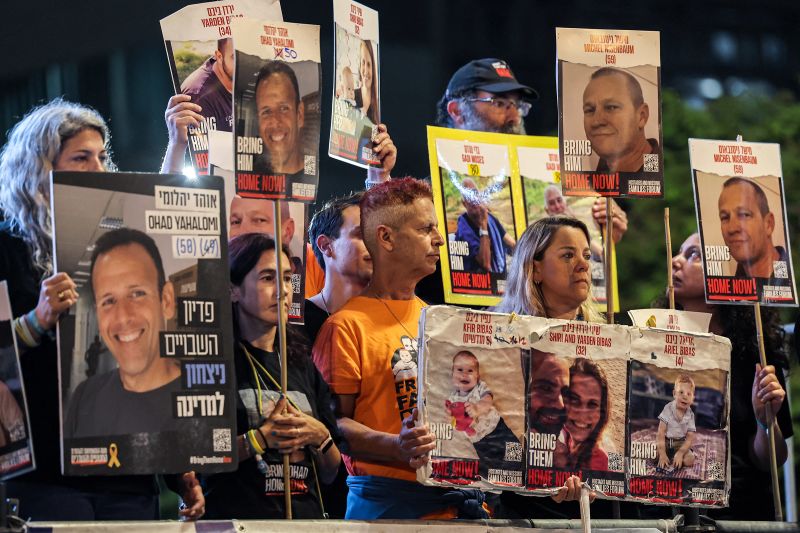As tensions continue to mount in the Middle East, a series of anti-government protests have broken out across various regions, all with a unified demand for the release of Gaza hostages ahead of Israel’s Memorial Day. Amidst a backdrop of political unrest, these demonstrations have come to symbolize the evolving face of resistance and struggle in the region.
Israel’s Memorial Day, known as Yom Hazikaron in Hebrew, traditionally memorializes fallen soldiers and civilian victims of terrorism. However, this year, the commemoration has been put under a new light, overshadowed by the urgent calls from protesters to release the Gaza hostages.
The anti-government protesters have raised concerns about human rights violations and the ongoing political impasse that has led to people’s captivity. They assert that releasing these hostages would not only act as an immediate redressal to the individuals and families affected but also contribute significantly towards initiating dialogues of peace and reconciliation. The protests have spanned far and wide, reaching global scales and sparking discussions on international forums concerning human rights and political accountability.
At the heart of these protests is the multifaceted issue of the ongoing Israeli-Palestinian conflict. The reality on the ground is complex, and any solution must acknowledge this complexity. Despite varying opinions on the matter, one sentiment is glaringly apparent: the necessity to respect human rights andinternational law. Advocates for the release of the hostages argue that such a move aligns with humanitarian principles and could create a platform for further peace resolution procedures.
These anti-government demonstrations have featured a broad coalition of participants: local civilians, international activists, human rights organizations, and relatives of the hostages themselves. Together, they have created an atmosphere of solidarity and unity, raising their voices against what they perceive as an injustice. The protesters employ various tactics, from peaceful demonstrations, sit-ins to utilizing social media platforms, rallying people towards their noble cause.
Interestingly, there has been remarkable resilience within these protests. They have risen above the obstacles of curfews, violent retaliation, and other forms of repression. The resolve of these individuals is a testament to their faith in the possibility of positive change from their collective action.
The fate of the Gaza hostages remains uncertain, and their plight continues to be a topic of intense speculation and debate. However, what is evident is that the atmosphere surrounding this year’s Israel’s Memorial Day is unlike any other. The anti-government protests have brought global attention to the hostage situation in Gaza and have urged relevant authorities to intervene in the situation.
Indeed, these protests have imparted an influential narrative in the chronicles of the Israeli-Palestinian conflict. As Israel’s Memorial Day approaches, the world watches with bated breath, waiting to see the outcome of these impassioned pleas for justice. Whether or not these hostages are released, such public outcry showcases the power of collective resistance to influence change.




